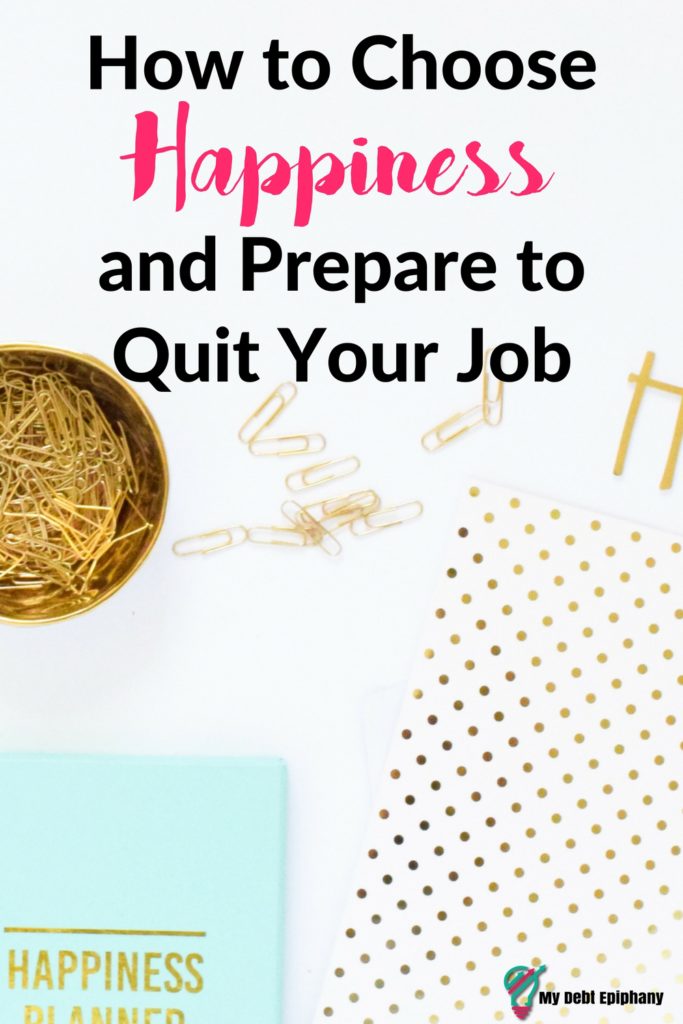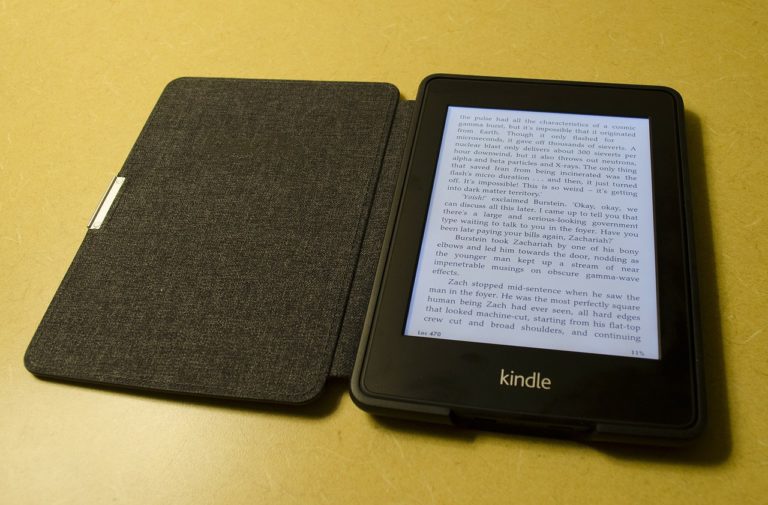Crucial Steps to Take Before Taking a Leap of Faith and Quitting Your Job
So for these past 10 months, I felt like I’ve been having some type of quarter-life crisis – yeah that’s a thing. I was so happy to land my current job two years ago, and even more motivated to pay off my debt.
I set huge goals to get debt free ASAP, started this blog, and broke into the world of freelancing.
Things were going great, then my responsibilities at my job started changing. In fact, they were always changing. Freelancing took off and I landed more clients and started meeting all the goals I set for myself.
I got engaged last year and I was excited to start planning my new life. As a result, that meant reshaping everything I had planned beforehand. My life and finances changed, for the better of course, but it was still a major adjustment.
To add fuel to the fire, I started feeling confused about what I really wanted in life. I started feeling iffy about the job I once hoped and prayed I would land. I’m normally one to push off stress and pressure at work and power through sickness.
But one day in November last year, I came home and cried to my husband after a horrible day at work. He had no flipping idea what was going on but simply offered his support. Things started to get worse at my job for me and it would happen in waves so I almost could have sworn I was going crazy.
One week things were great and the next week, I’d want to pull my hair out and walk out the door for good. That’s probably why I seemed so up and down with my monthly updates here on the blog (if anyone noticed). I honestly didn’t know what to think or what to do, but deep down, I think I knew that something wasn’t right.
I shouldn’t have been dreading the sound of my alarm clock and secretly wishing I could stay home and cuddle with my son every.single.day. this past summer. I shouldn’t have been feeling like something was missing in my life.
I shouldn’t have been feeling crabby during the workweek and relieved and happy during the weekends. I shouldn’t have felt this unexplainable pit in my stomach each Sunday evening when I knew that sooner or later, I was going to have to prepare my things for work the following morning. I kept trying to tell myself that these feelings were normal, but they weren’t.
After much thought and reflection, I decided to submit my notice to my boss at the end of last month. I barely got through writing my email before I broke down. I’m sooo not an emotional person, but again, I think I’ve been going through a quarter-life crisis. I learned so much at my job and I am so grateful for all the experiences, lessons, and the opportunity to work with great people.
Needless to say, I was slightly frightened to take the leap out into the unknown without the protection and stability of my traditional job but I knew I couldn’t continue what I was doing.
I love freelancing and blogging, but I can’t guarantee that it’s going to make me feel completely whole again in terms of my professional life but I’m positive it will help a ton.
What I want to discuss in this post is that when people say they’re going to ‘quit their jobs’ or ‘make the leap’ most of them don’t just wake up one day fed up with life and decide to make a break for it. That’s super risky. In a lot of cases, it takes lots of time and careful planning to make the leap. Ideally, this process can take around a year. For me, it took 10 months but it can be longer or shorter depending on your situation.
Whether you’re looking to start freelancing or run your own service-based business, here are a few crucial things you must do if you are considering making the leap sometime in the future, even if it’s years away.

Table of Contents
Save Up Enough Money
Many people will insist you need to save up 6-12+ months of expenses before even considering to quit your job for self employment blah, blah, blah. The truth is, everyone has their own situation and needs.
I know people who have saved up $40,000 before quitting their job to blog or freelance and I also know people who saved up $1,000 before taking the leap.
The choice is totally up to the individual but you need to be honest with yourself about your needs and how stable your situation is. If you have kids, a mortgage, pets, or other responsibilities, you’ll need to come up with savings strategy and goal that makes you feel comfortable.
In my case, I saved up 3 months of expenses and some change along with a separate cash buffer for my checking account and I feel more than comfortable with that. I lowered my expenses a ton over the past year, and it’s a very slim chance that I’d earn absolutely nothing in a given month from freelancing unless there was some major life-threatening emergency. The odds that my husband would earn $0 for several months as well is also super slim plus we have a backup plan in case worse comes to worst.
Create a Realistic Budget
Emphasis on the word realistic. This should be one of the first tasks on your checklist. It’s important to know how much you need to earn in order to get by in a given month. Almost everyone has a little wiggle room in their budget or non-necessity expenses that can be cut out in the event of a financial emergency.
I developed a new realistic budget to help me cover all my expenses when I start working from home. I cut or reduced expenses I no longer needed but I also kept quite a few because I wanted my budget to reflect my actual spending habits, wants, and needs.
I also have a bare-bones budget in my back pocket in case I endure any lower earning months. For example, my regular budget requires about $1,700-2,000 and but this includes extra debt payments because I still want to prioritize paying off my debt. If I really needed to, I could live on $1,500 per month, but there’s no way I could get by on only $1,000 so I’m not even going to waste time trying to write out a budget I know I couldn’t commit to.
It’s just not going to happen, and since I know that, I know how much I need to earn in order to make ends meet and have a little leftover for savings and debt payments.
Figure Out How All Your ‘Benefits’ Will Factor In
It’s no secret that freelancers don’t get any benefits that traditional employees get. It’s crucial to factor in costs for expenses like healthcare, retirement, and insurance into your realistic budget so you can make sure those expenses are met.
This step wasn’t that hard for me to work through since I don’t even have that many benefits with my employer anyway. I already have a Roth IRA (individual retirement account) and I hope to open a SEP IRA soon which is for self-employed individuals, I have medical coverage on my own, along with ppo dental and life insurance.
If your employer does offer any of these benefits and you quit your job, you may qualify for a special enrollment period allowing you to secure your own insurance policies.
Master How You Manage Self Employment Earnings
Being self-employed requires a little more financial housekeeping than simply depositing your paycheck into your bank account.
As a full-time freelancer, you’ll need to make sure you have a system in place for sending out invoices, withholding a portion of your income for taxes, contributing to retirement and other accounts, and tracking your income and expenses for tax purposes.
It sounds like a lot and it is. Luckily, there are many tools and software programs to use to help make things easier. I still use a good old spreadsheet to track my monthly income and expenses but you can use other accounting tools like Quickbooks and Due or Freshbooks for sending invoices. Freshbooks has already saved me a ton since I used to invoice with PayPal and it ate up a lot of my income in fees.
Create a Detailed Plan for Your Business
Finally, it’s important to know where you’re headed in the future. You don’t have to write up a 15-20 page detailed business plan, but it doesn’t hurt to set specific goals and milestones you hope to reach with your business.
Consider how your typical day will go and how much time you plan to devote to sometimes nonbillable tasks. For example, freelancers and especially soloprenuers have to factor in other tasks and responsibilities that they can’t usually bill clients for like research, invoice, sending pitches, responding to emails etc.
Your plans for your business don’t even have to revolve around monetary gains and they may even change over time. The idea is to have some kind of idea as to which direction you’d like to head in so you will use your time wisely and maximize productivity. Your future plans for your business might also require a few business expenses that you’ll want to budget for ahead of time.
Freelancing has its perks, but there are many disadvantages that you’ll need to prepare for along with the emotional side of being self-employed. I can’t say that I’m 100% prepared and have all the answers because I’m sure I don’t, but by preparing and following these steps to the best of my ability, I’m ready, willing, and even excited to embark on this next chapter of my life.
I know this post is a long one but I feel like I barely scratched the surface here. Is there anything you would add to this list that freelancers need to prepare for before taking the leap? Are you working on any of these tasks currently?
My Favorite Resources
CreditSesame– My go-to tool to check and monitor my credit for free.
CapitalOne 360 – My favorite high-yield online savings account. Earn $25 when you open an account.
Freshbooks – This is the tool I use to invoice freelance clients and avoid those annoyingly high PayPal fees. Try it out for 30 days and I bet you won’t go back to using your old invoicing tool.
Betterment – This is where I keep my Roth IRA. Betterment is my favorite investing tool because they do all the heavy lifting for you which is so helpful especially if you’re completely new to investing and have no idea what you’re doing.
Pay Down My Debt – If you hate paying interest on your debt, you’ll love this service. It helps you make frequent automatic payments to reduce your debt balance faster so you can pay less interest overall
Stop Worrying About Money and Regain Control

Join 5,000+ others to get access to free printables to help you manage your monthly bills, reduce expenses, pay off debt, and more. Receive just two emails per month with exclusive content to help you on your journey.






